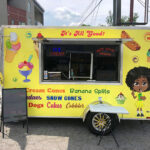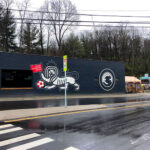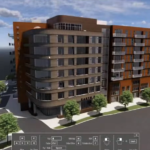Jason Sandford
Jason Sandford is a reporter, writer, blogger and photographer interested in all things Asheville.
[portfolio_slideshow]
By David Forbes
For observers of local politics, the last two Asheville City Council elections have been a study in extremes.
Just five candidates ran for three seats in 2013, meaning there was no primary, though the race for mayor did have a primary that year. That was unusual; the Buncombe County Board of Elections couldn’t find a record of the last time it happened. City Council elections have seen a primary in at least every election since 1981.
Flash forward two years, and no less than 16 candidates have thrown their metaphorical hats into the ring, the most in at least a decade. (The candidates are: Corey Atkins, Joe Grady, Brian Haynes, Carl Mumpower, Lindsey Simerly, Marc Hunt, Keith Young, Julie Mayfield, Dee Williams, Grant Millan, John P. Miall, Richard Liston, Rich Lee, Ken Michalove, Lavonda Nicole Payne, and Holly P. Shriner.)
There will — and should be — plenty of focus on the candidates, their campaigns and positions in coming months. But the sheer number running is an interesting fact in its own right, and one that deserves some more attention.
What’s changed over the past two years? Like with most political phenomena, a number of causes have collided this year to result in the busiest — and possibly most important — City Council election in a long time.
Two incumbents bowed out
Some of the electoral terrain was set early when two of the incumbents, three-tern Councilman Jan Davis and one-term Councilman Chris Pelly decided not to run again.
If either or both could’ve held onto their seats is an open question. Davis won a third term by a handful of votes, and Pelly could’ve faced a serious challenge from neighborhood advocates angered about his support for a number of controversial development plans.
But as incumbents with experience in local politics, established constituencies and money, their presence would have set the bar higher for potential candidates weighing their chancese. With them out, at least two seats are up for grabs, and the odds started to look considerably better for new candidates.
A lot’s going on
On a number of fronts, controversy and tension are the watchwords of our city these days. Ashevillians are politically active, but generally fragmented, putting their efforts into specific causes rather than overarching political platforms. But on multiple fronts lately, there’s been a lot of activity, and that’s feeding the crowded Council field.
The housing crunch is so bad that even city leaders are now calling it a crisis, there’s a major battle over the city’s development rules looming, wages in many fields are stagnant or declining despite the tourism boom, taxes increased twice in three years, the last police chief left amid controversy, gentrification’s rampant and our city’s de facto racial segregation is an increasingly prominent issue.
I’m sure I’ve missed a few important issues in that list. That’s the kind of city Asheville is right now.
But it all means that a lot of different constituencies — and people active in a variety of groups — are riled up and believe they have a shot to change it. Various factions of progressives think they can push further on affordable housing, wage and transit issues. Centrist business types want to keep their economic development and incentive policies going. Some neighborhood groups are upset about controversial development votes and the possibility of an overhaul of the city’s zoning rules. Conservatives are up in arms about taxes and spending (and gay pride flags draped from City Hall, for the more far-right of them).
Combine that and you’ve got more ferment than usual out there in our city, leading to more people wanting specific issues addressed at the city level than before. Council seats are one significant way of securing more power for their agenda. Combined with the relatively high number of open seats, this was a major factor leading to the rush of candidates.
Changes in Raleigh
Back in 2013, the city was in the midst of political battles with the N.C. General Assembly in Raleigh over everything from water to the airport to elections. While plenty of important local political decisions were made, the possibility of serious confrontation with the state definitely changed the dynamics of municipal politics, as well. “Siege mentality” wouldn’t be an inaccurate description.
But while the city’s still fighting about the fate of the water system in court, the last local elections swept out N.C. Reps. Tim Moffitt and Nathan Ramsey, who were the two of the major proponents behind much of the legislation opposed by the city.
That doesn’t mean things are peachy between Raleigh and the city. Far from it. But the strongest objections from local government to the General Assembly right now mostly revolve more around statewide policies — like the end of the business license tax or the proposed sales tax overhaul — that city leaders see as making a major dent in their ability to make ends meet.
With that, more attention has turned back to local matters like development, wages, the economy, taxes and infrastructure. That means potential City Council candidates see more room to shape what happens in the city without their term being consumed by lawsuits and battles with the legislature.
Turnout’s usually low
If the sheer number of issues at stake is an indication of how much the city’s changing, another factor is actually a mark of how much hasn’t – or least isn’t predicted to — change.
Turnout in local Asheville elections is notoriously anemic, generally around 15 percent in recent years. That means that it’s not unheard of for candidates to rally their constituency, get some decent name recognition and manage to pull out a win. Related to the city’s fragmented politics, mentioned earlier, that means that a lot of people talk to some similar-minded folks, hear that their concerns have traction and make a go of it. Sometimes, they win. Sometimes they get crushed.
Despite our growth, elections in Asheville still largely function like those of a much smaller city: candidates generally don’t run in groups or slates and their campaigns can look more like resumes for an upper-middle class job than political platforms for a democratic election. A lot of attention is given to personal connections, the occasional forum back-and-forth and appeals to individual neighborhoods or groups.
While those certainly are far from unheard of in larger elections too, the specific shape of Asheville campaigns are directly tied to an assumption of low turnout. As it currently stands, the city’s political culture isn’t at a point where candidates have to put together broad coalitions or detailed platforms for sweeping change to win elections.
However, whether turnout in this election ticks up or stays flat, the city is changing and inevitably, that will sooner or later be reflected everywhere from the ballot box to City Hall.
Featured image of Brian Haynes by photographer STEWART O’SHIELDS for ASHVEGAS.COM.



























There will NOT be “plenty of focus on the candidates.” Jason, unless you provide it; because they are getting totally upstages by next years candidates like Trump and Sanders. Please provide all the analysis you possibly can of the city council race, especially in terms of who will increase the desperately short total housing supply the most and least. The candidates themselves talk only in platitudes leaving me with very little idea who really stands for what. I see only 2 election ’15 posts all summer and we need far more coverage than that if we are to keep the ’15 coverage ahead of ’16 coverage where it belongs.
We have a weak political structure in Asheville, so I’m not sure it makes much difference, The mayor has virtually no more power than any council member. The most powerful position in Asheville is occupied by the incredibly weak Gary “I’m afraid to do anything that could get me fired again” Jackson.
Maybe vote for whoever calls my phone the fewest times.
Other than Dr. Mumpower, are there any other conservatives running, or would they simply be too scared to say it, even if they were?
Rich Lee won’t answer the question, as I’d hoped MAYBE
he MIGHT be at least moderately conservative, but he gives NO hope for that. John Miall could be and may
get my 2nd vote after Mumpower. Then, of course, Dee
Williams would be fun to watch.
Michalove sounded pretty conservative to me. I wish they would blame high rents more on regulation. They blamed taxes but city taxes raise rents less than 10%. It is REGULATION that is doubling rents, not taxes. The conservative candidates missed a major opportunity when they missed that point. They could have had a major Joe the Plumber moment at that forum.
A “Lavonda Payne” and a “Lavonda Nicole Payne” both running for Council at the same time? What are the chances?
Sorry, couldn’t resist, Jason. You counted her twice and forgot Dr. Carl.
Sorry again – I see this piece was written by David Forbes, not Jason.
The list of hopefuls seems incomplete somehow.
So true. Who — *who*, I ask you — is willing to stand up and be the voice of embittered sociopaths everywhere?
I dare say, you could fill that bill, Mr. Haunted. I’m holding my breath now.
Filing window is closed.